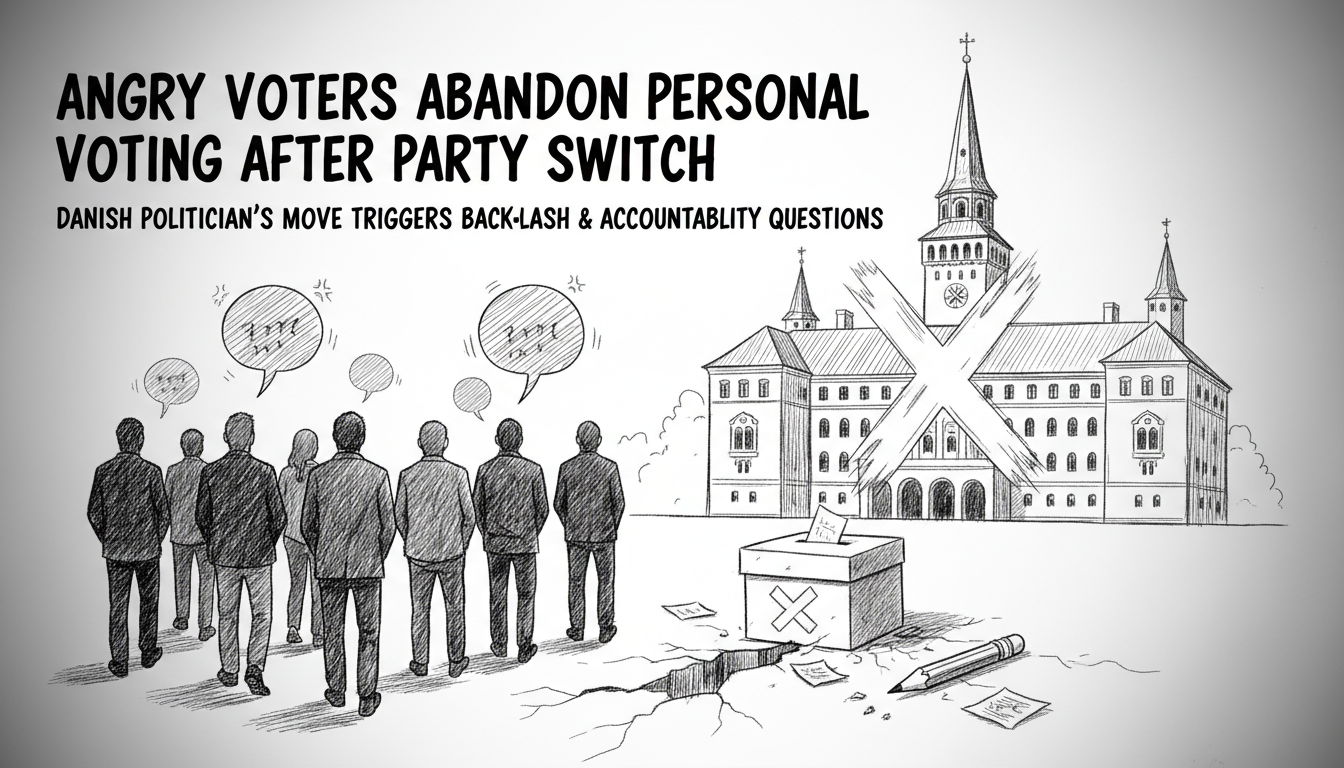A political party switch in a Danish municipality has sparked voter outrage and raised questions about political accountability. Ulla Sørensen, recently elected as a Social Democrat council member, announced her defection to the Venstre party just one day after local elections concluded. The move positions her to potentially become the next mayor of Middelfart Municipality.
Josephine Sørensen, a 32-year-old voter who supported the candidate, expressed deep frustration about the situation. She had consistently voted Social Democratic throughout her adult life, believing the party best represented her values. Now she plans to avoid personal voting entirely in future elections, or possibly abstain from voting altogether.
"My vote has no influence on what I actually choose," she told reporters, capturing the sentiment of many disillusioned voters.
Other Middelfart residents echoed similar concerns. Anni Hermansen openly regretted not selecting a different candidate, feeling betrayed by the sudden party change. On social media platforms, comment sections filled with criticism directed at the politician, particularly highlighting her election day post emphasizing "honesty, loyalty, diligence and transparency."
Niels Lindh, another local resident, called the party switch "disgraceful" and expressed hope that Sørensen would not become mayor. He argued that politicians elected under one party banner should remain with that party until the next election cycle. Lindh suggested legislation should prevent such political maneuvering.
The party switch highlights a broader issue in Nordic politics where elected officials sometimes change affiliations between elections. This practice, while legal, often generates public distrust and questions about political integrity.
Sørensen defended her decision, stating she could no longer see herself in her previous party's configuration. When asked about voters who supported her as a Social Democrat, she responded that she hoped they would understand her choice, adding that she was "following her heart."
Not all residents condemned the move. Kresten Mortensen, a police officer, welcomed the political development as "fantastic" for creating movement in local politics. Another voter, Bettina Bauder, viewed such political maneuvering as inherent to municipal politics, comparing it to expected political gamesmanship.
The situation in Middelfart reflects ongoing debates about political accountability across Nordic countries. Similar incidents have occurred in Sweden and Norway, where party switches sometimes trigger calls for by-elections or legislative changes.
Local political experts note that such moves can destabilize municipal governments and undermine public trust. The Middelfart case demonstrates how quickly political alliances can shift after elections, leaving voters questioning whether their ballots truly reflect the government they'll receive.
Whether Sørensen becomes mayor remains uncertain. Political observers suggest intense negotiations will determine the outcome, with her former party likely employing various strategies to block her ascent.
The incident raises fundamental questions about representative democracy. Should politicians be bound by party affiliations throughout their terms? Do voters elect individuals or parties? These questions become particularly acute in proportional representation systems common throughout Scandinavia.
For international observers, the Middelfart situation offers insight into Nordic political culture, where coalition-building and party loyalty often balance against individual political ambition. The outcome could influence similar debates in other municipalities facing comparable scenarios.

